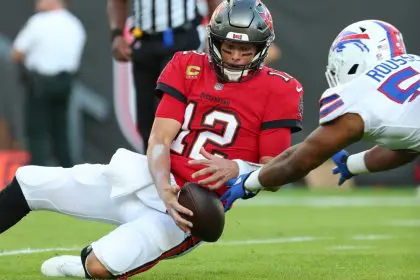 Frank Cooper III, the chief consumer engagement officer at PepsiCo America Beverages, has attained legendary status in the advertising world at a relatively young age because the man simply doesn‘t approach life the way others do.
Frank Cooper III, the chief consumer engagement officer at PepsiCo America Beverages, has attained legendary status in the advertising world at a relatively young age because the man simply doesn‘t approach life the way others do.
The former law school classmate of President Barack Obama said this as an example of his unique perspective on life: “For the most part, I’ve thought about race as an opportunity more than a challenge,” he says. “I never saw race as a barrier growing up.”
That’s a small glimpse into the thinking of the man who has created such iconic projects as Pepsi We Inspire, an online community that enables ordinary African American women to connect with entertainment legends like Queen Latifah and swap stories of empowerment and enlightenment. He single-handedly ignited local activism with Pepsi Refresh, which led to millions of dollars being appropriated for environmental and cultural projects.
And who can forget Dewmocracy, the campaign that enabled throngs of Pepsi loyalists to help invent the soft-drink giant’s newest soda flavors? These are just a few the reasons that Cooper was bestowed the Legends Award at the annual AdColor Awards in Miami Beach, Fla.
“There are unique experiences that we can create every day. That’s what I love to do. And that’s what inspires me every day,” he said, slightly uncomfortable with being called a legend. “That puts a stamp on what you’ve done. I’m still curious and I’m still hungry. There’s a lot more that I want to do.”
Cooper’s already done much to be admired for. After attending the University of California-Berkeley as an undergrad and then Harvard Law School, Cooper began sculpting his legacy at Motown Records and Def Jam Recordings before landing at Pepsico. He learned that you have to create emotional bonds with prospective consumers before they will attach themselves to your brand.
“The ingredients [that go] into making a great [commercial] campaign [should] ultimately make someone feel something. It’s not about making someone think about something; it’s [about] making them feel something that they haven’t felt before. And when that happens, people tend to act. So I think that’s the heart of it. People feel first, [and] then they think second,” he says.
–terry shropshire










